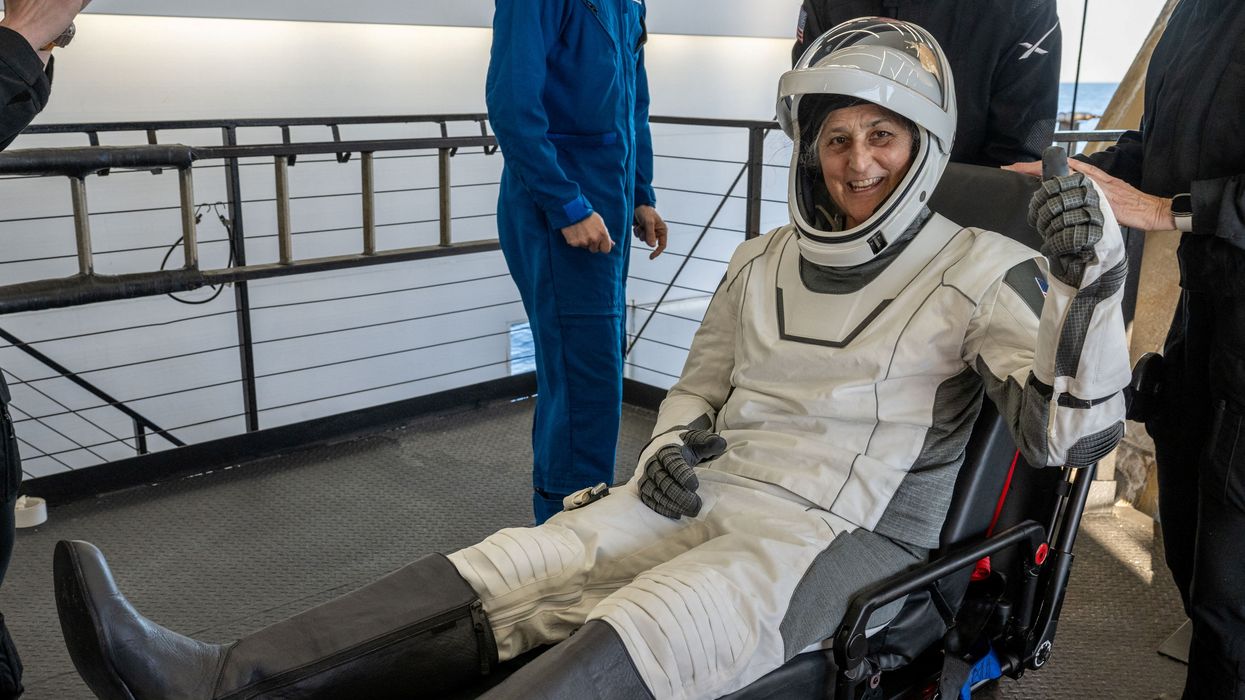NASA astronaut Sunita Williams described India as "amazing" from space and expressed her intention to visit her "father's home country" to share her experiences on space exploration.
Speaking at a press conference on Monday, she responded to a question about how India appeared from space and the possibility of collaboration with the Indian Space Research Organisation (ISRO).
"India is amazing. Every time we went over the Himalayas, and I'll tell you, Butch got some incredible pictures of the Himalayas. Just amazing,” Williams said.
The 59-year-old astronaut, along with fellow astronaut Butch Wilmore, addressed reporters in their first joint press conference since returning to Earth. They were part of the SpaceX Crew-9 mission and had been stranded in space for over nine months.
"And you can see, like I've described it before, just like this ripple that happened, obviously when the plates collided, and then as it flows down into India. It's many, many colours," she said.
Williams described India’s landscape from space, highlighting how lights from cities formed a network.
"I think, when you come from the east, going into like Gujarat and Mumbai, the fishing fleet that's off the coast there gives you a little bit of a beacon that here we come, and then all throughout India, I think the impression I had was it was just like this network of lights from the bigger cities going down through the smaller cities. Just incredible to look at at night as well as during the day, highlighted, of course, by the Himalayas, which is just incredible as a forefront going down into India,” she said.
Her remarks echoed the words of Rakesh Sharma, who became the first Indian in space 41 years ago. When then-Prime Minister Indira Gandhi asked how India looked from space, Sharma had replied, "Sare jahan se achcha."
Williams also expressed enthusiasm about visiting India and engaging with people, particularly in light of the upcoming Axiom Mission 4 (Ax-4), which will include Mission Pilot Shubhanshu Shukla from India.
"I hope, and I think for sure, I'm gonna be going back to my father's home country and visiting with people and getting excited about the first, or not the first, but the Indian national who's going up on the Axiom Mission coming up, pretty awesome,” she said.
Shukla, who was born in Lucknow, will be the second Indian to go to space after Rakesh Sharma.
"They'll have a hometown hero there of their own who will be able to talk about how wonderful the International Space Station is from his perspective. But I hope I can meet up at some point in time. We can share our experiences with as many people in India as possible because it's a great country, another wonderful democracy that's trying to put its foot in space countries. We'd love to be part of that and help them along,” she said.
Williams' father, Deepak Pandya, was originally from Gujarat. He moved to the US in 1958 for medical training in Cleveland, Ohio. She was born in Ohio to Deepak and Ursuline Bonnie Pandya.
During the press conference, Wilmore asked Williams if she planned to bring her crew members along on a trip to India. She responded with a laugh, "Absolutely. You might stick out a little bit but that's okay. We'll get you all primed with some spicy food, will be good.”
Prime Minister Narendra Modi welcomed Williams and her Crew-9 colleagues upon their return, saying their determination would inspire millions.
“Welcome back, Crew-9! The Earth missed you,” Modi posted on X.
NASA astronauts Williams, Nick Hague, and Wilmore, along with Roscosmos cosmonaut Aleksandr Gorbunov, returned to Earth on 18 March aboard SpaceX's Dragon spacecraft, which splashed down off the coast of Tallahassee, Florida.
Williams and Wilmore had originally planned an eight-day mission as test pilots for Boeing’s Starliner capsule, but technical issues extended their stay to more than nine months. The spacecraft, which experienced helium leaks and thruster failures, was deemed unsafe and returned without them in September.
“Theirs has been a test of grit, courage, and the boundless human spirit. Williams and the Crew-9 astronauts have once again shown us what perseverance truly means. Their unwavering determination in the face of the vast unknown will forever inspire millions,” Modi said.
He added that space exploration pushes human potential and requires the courage to turn dreams into reality. “Williams, a trailblazer and an icon, has exemplified this spirit throughout her career,” he said.
“We are incredibly proud of all those who worked tirelessly to ensure their safe return. They have demonstrated what happens when precision meets passion and technology meets tenacity,” Modi said.
(With inputs from PTI)




